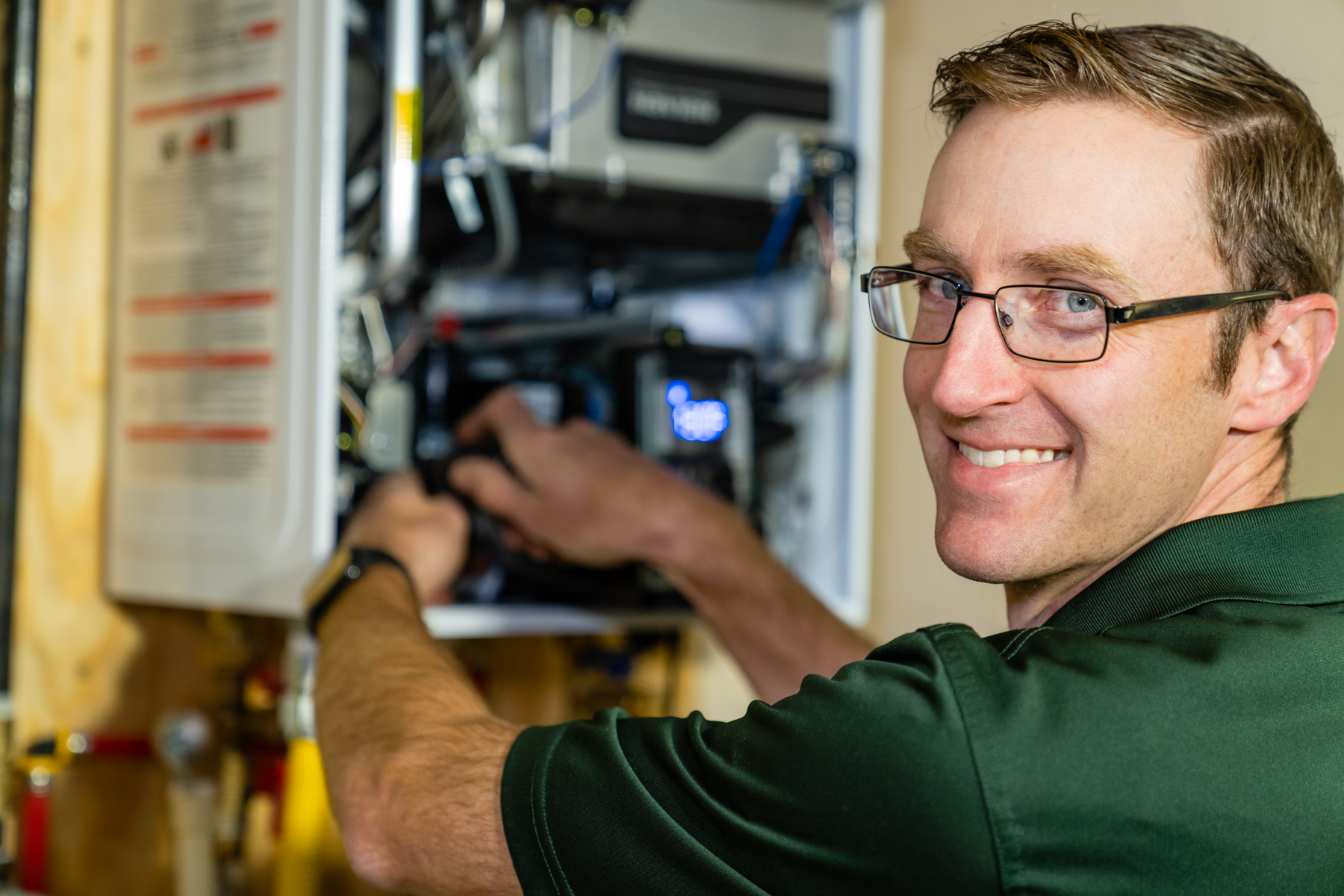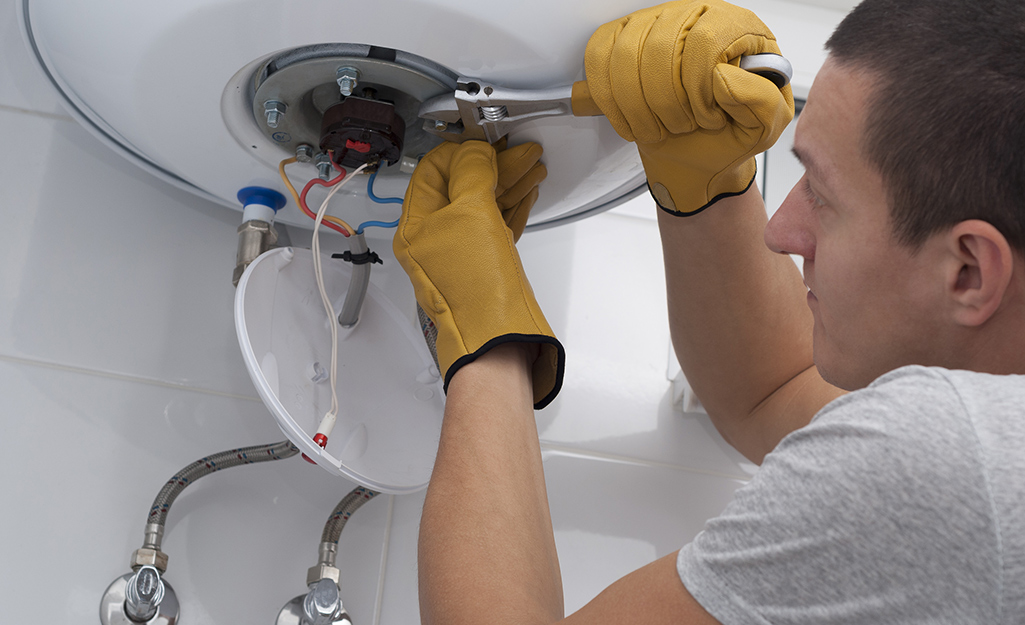Ways to Address the Common Water Heater Emergency Challenges
Ways to Address the Common Water Heater Emergency Challenges
Blog Article
Every person may have their own opinion when it comes to Common Hot Water Heater Problems.

A water heater is just one of one of the most important basic appliances that can be discovered in a residence. With water heaters, you don't need to undergo the tension of heating water manually every time there is a need to wash, wash, or the recipes. However, there is always an opportunity that your water heater would certainly act up just like a lot of mechanical devices.
It is important to keep in mind any type of little breakdown as well as tackle it rapidly before points leave hand. Many times, your water heater begins to malfunction when there is a build-up of sediments as a result of continual use. As a precaution, routine flushing of your water heater is advised to avoid sediment accumulation and stop functional failure.
Usual water heater emergency situations and exactly how to deal with them
Insufficient hot water
It may be that the water heater can not support the hot water need for your home. You might update your water heating unit to one with a larger ability.
Rising and fall water temperature level.
Your water heating system might begin producing water of various temperature levels generally ice scalding or cold warm. There could be a requirement to change either the home heating or the thermostat unit of your water heating unit.
Leaking water heater container.
A leaky tank could be an indicator of corrosion. It can create damages to the floor, wall as well as electric tools around it. You can also go to danger of having your apartment flooded. In this scenario, you need to shut off your water heater, enable it to cool down, as well as very carefully look for the source of the problem. Sometimes, all you require to do is to tighten a couple of screws or pipeline connections in cases of minor leakages. If this doesn't work and the leak persists, you might need to utilize the solutions of a professional for an appropriate substitute.
Stained or odiferous water
When this occurs, you need to understand if the problem is from the water or the container resource. If there is no amusing smell when you run cold water, then you are particular that it is your water heater that is damaged. The odiferous water can be brought on by corrosion or the accumulation of bacteria or sediments in the water heater storage tank. You can try flushing out your storage tank or replacing the anode if the problem persists once you observe this. The feature of the anode is to clean out germs from your storage tank. Considering that the anode rod replacement requires a thorough knowledge of your water heater, you will certainly require the assistance of a professional.
Conclusion
Some homeowners neglect little caution and minor faults in their hot water heater system. This only brings about additional damage and a feasible complete failure of your home appliance. You need to handle your hot water heater mistakes as soon as they come up to stay clear of even more expenses and also unnecessary emergency problems.
With water heaters, you do not require to go with the stress and anxiety of home heating water manually every time there is a need to take a bath, do the washing, or the dishes. It may be that the water heater can not support the hot water need for your apartment or condo. Your water heater can start producing water of various temperatures usually ice hot or cold warm. If there is no funny odor when you run cold water, after that you are certain that it is your water heating unit that is faulty. The smelly water can be created by rust or the build-up of microorganisms or sediments in the water heating unit container.
What’s Wrong With My Water Heater?
Not Enough Hot Water
You probably encounter this problem in the shower or while washing dishes. As you run your water, you’ll notice it starting to cool down. Turning up the hot faucet may not work, or it may only heat the water for a short period. Your hot water probably comes back and works normally one or two hours after you use it up.
If you’ve never had enough hot water, your heater may be too small for your home. If you haven’t had a problem until recently, there’s probably something’s wrong with your heater’s thermostat. Try adjusting it to see if you can feel a difference. Even if the thermostat’s working, the heating element itself could have burnt out. It’s also possible that a clog has restricted water flow into or out of the heater. Luckily, none of these problems are hard to fix, as long as you call them in early.
Water is Too Hot
Unregulated water heaters can make water dangerously hot. You probably have this problem if you’ve been scalded by your hot water. It’s also a likely culprit if you have trouble getting your faucets to produce a comfortable temperature. This problem is easy to fix, but it can also be a serious health hazard if you don’t address it. If you think your water is too hot, don’t doubt yourself; look into it!
Start by finding your heater’s thermostat and mark its position with a pen. Turn the thermostat to a cooler setting. Wait a couple hours to see if the problem is solved. If it isn’t, listen for boiling in the tank and look for water that comes out of the faucet steaming. In those cases, your temperature-pressure relief valve may be malfunctioning. This is a serious problem that can be dangerous, so you should have it looked at right away.
Discolored or Smelly Water
If all your water looks rusty or smells weird, there’s probably a problem with your pipes. If only your hot water looks weird, however, your water heater is probably at fault. Hot water discoloration comes in several varieties. It could look orange or brown-ish, taste rusty, or feel grainy. It could also look yellow or green-ish and taste gross or feel slimy. Either way, it’s a sign that there’s something wrong with your water heater’s tank.
Usually, hot water discoloration means sediment has built up in your tank. Sediment is made up of hardened minerals that accumulate on the inside of the water heater’s walls. When enough sediment builds up, it causes all kinds of problems–including your discolored water. Try flushing your water heater tank to clean out built up sediment. If the water still tastes rusty, your tank’s rust-preventing anode rod may have worn out. A pro can replace an anode rod easily, but without one, your tank could rust beyond repair relatively quickly.
Leaking
Water heaters can leak from several different places, and each leak means something different. If the leak is coming from a pipe above the heater, it’s possible the tank itself hasn’t been compromised. The cold inlet, hot outlet, and T&P pipes could all leak from above. Try tightening the problematic valve. If that doesn’t work, then the valve or pipe will have to be replaced.
If the leak is coming from the bottom of the tank, it’s important to determine exactly where it is. The leak could be coming out of the drain valve or your T&P valve below the tank. You can replace those valves and preserve the tank itself. If you notice the water tank itself leaking, however, that probably means it’s corroded beyond the point-of-no-return. Leaking water heaters are a big deal, so you should get yours replaced ASAP.
https://www.punctualplumberdallas.com/blog/whats-wrong-water-heater/

We were guided to that report on The Importance of Water Heater Maintenance from an acquaintance on another domain. In case you appreciated our blog posting please be sure to pass it around. I am grateful for your time. Visit again soon.
Need fast action? Dial. Report this page